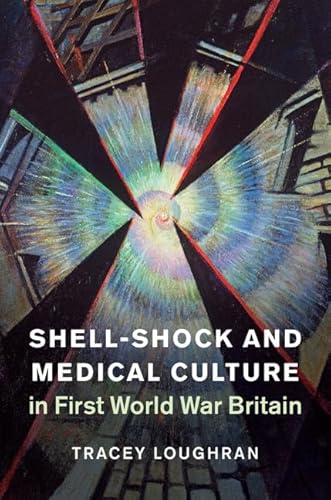
Shell-Shock and Medical Culture in First World War Britain
by Tracey Loughran
Popularity
4.11 / 5
* A book's popularity is determined by how it compares to all other books on this website.
Where to buy?
Buy from Amazon* If you buy this book through the link above, we may receive a small commission at no extra cost to you.
Shell-Shock and Medical Culture in First World War Britain by Tracey Loughran
Details
War:
World War I
Perspective:
Medics
True Story:
Yes
Biography:
No
Region:
Europe
Page Count:
293
Published Date:
2017
ISBN13:
9781107128903
Description
Brief Summary
Shell-Shock and Medical Culture in First World War Britain by Tracey Loughran delves into the multifaceted medical and societal response to shell-shock during the First World War. By examining the intersection of medicine, military, and society, Loughran provides a comprehensive understanding of how shell-shock was diagnosed, perceived, and treated in Britain. She offers a detailed analysis that weaves together historical context with medical practices of the time, illuminating the complexities involved in handling psychological trauma within the confines of early 20th-century medical knowledge.
Main Themes and Topics
One of the central themes of the book is the exploration of the evolving medical culture in Britain during the War. Loughran unpacks the role that shell-shock played in challenging existing medical paradigms and the ways in which it pushed the boundaries of psychiatric understanding. She also discusses the societal influence on medical diagnoses, highlighting how gender, class, and military hierarchy impacted the treatment and perception of mental illness. Through these discussions, the book sheds light on the broader implications of shell-shock for medical history and its enduring legacy in contemporary understandings of psychological trauma.
Writing Style and Tone
Tracey Loughran's writing style is scholarly yet accessible, making complex medical and historical concepts comprehensible to a wider audience. Her tone is analytical and carefully balanced, providing an impartial examination of the subject matter. Loughran's approach is both empathetic and critical, offering insights that are grounded in thorough research while remaining sensitive to the human stories behind the historical phenomena.
Criticism
While the book is deeply informative, some readers might find the detailed academic nature of Loughran's work to be dense at times. The extensive footnotes and comprehensive discussions may pose a challenge for those not accustomed to academic texts. However, for readers with a keen interest in medical history or the First World War, these details significantly enrich the exploration of the topic.









